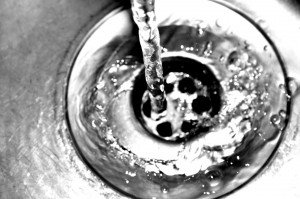Just Dump in Some Drano? Why You Should Avoid Chemical Drain Cleaner
Just Dump in Some Drano? Why You Should Avoid Chemical Drain Cleaner
 Why You Need to Avoid on Using Chemical Drain Cleaner
Why You Need to Avoid on Using Chemical Drain Cleaner
It happens. You turn on the tap, the sink fills up, and nothing goes down the drain. No problem, right? Just dump in some Drano, wait a few minutes, and wash it down. While the water might flow and everything may seem all-clear, it is not the best idea. What could go wrong with chemical drain cleaner? It is designed to perform this task, after all. In reality, most chemical drain cleaners, like Drano, function in a particularly corrosive way. To understand why it helps to be familiar with the three top types:
Caustic Drain Cleaner
Caustic drain cleaners are basic. That is the opposite of an acid. Usually, they are made of lye or potash. They function by reacting chemically with the clogged grease to create a soap-like substance. This soap-like material is easier to dissolve and flush away. Drano is a familiar brand of caustic chemical drain cleaner.
Acidic Drain Cleaner
Acidic drain cleaners are harder to find. Many of them are only available to professional plumbers. These chemical drain cleaners contain strong acids, like hydrochloric or sulfuric acid. If you remember high school chemistry, these acids are often quite dangerous if handled incorrectly. Acid drain cleaners function by reacting with the clog and releasing heat, which can melt grease and make it easier to slide away.
Oxidizing Drain Cleaner
Oxidizing drain cleaners use substances like bleach or peroxide. They also work by reacting chemically with the clog which releases heat that can melt grease. They release gas during these chemical reactions that can help loosen clogs. Because many of these chemical drain cleaners generate heat, they can cause PVC pipes found in more modern homes to soften. This can cause these pipes to bend, become misshapen, and even fail. If used on older metal piping, chemical drain cleaners can react with the metals and cause toxic reactions or even explosive results. Some chemical drain cleaners can damage septic systems as well. Furthermore, besides their damaging effects on piping, chemical drain cleaners are just not safe materials. They are highly poisonous if swallowed. This is especially a concern with small children in the house, as chemical drain cleaners are often stored under sinks, within easy reach of kids. Additionally, handling chemical drain cleaners requires proper preparations, including gloves and eye protection at the least. On top of all of this, chemical drain cleaner may not be effective in all situations. Consumer Reports* finds that, compared to mechanical means, like plungers and drain snakes, chemical drain cleaners often don’t work well. So, next time you think about dumping something down your drains, consider that not only may it be toxic and incredibly harmful to plumbing, it may not even clear the clog. Instead, H. Jack’s is available day and night to fix the problem. *“Drain Cleaners Take the Plunger.” Consumer Reports. Nov. 2006.
